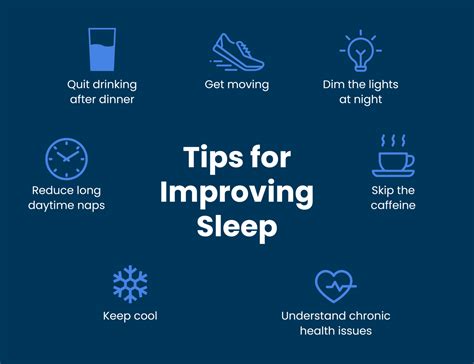In today's fast-paced and sedentary lifestyle, it is becoming increasingly important to prioritize our physical health. Engaging in regular exercise is an exceptional way to enhance our overall well-being and improve various aspects of our lives. Whether it is a brisk walk in the park, a yoga session, or a rigorous workout at the gym, incorporating physical activity into our daily routines can bring about numerous benefits that positively impact both our bodies and minds.
Regular physical activity not only contributes to the maintenance of a healthy weight, but it also improves cardiovascular health. Engaging in exercises that elevate our heart rate not only strengthens our heart muscle but also promotes better blood circulation throughout the body. This increased blood flow allows essential nutrients and oxygen to reach our organs and tissues more efficiently, enhancing their function and wellbeing.
Besides the physical advantages, regular exercise has a significant impact on our mental well-being. Participating in physical activities stimulates the release of endorphins, which are natural mood boosters. These feel-good hormones not only reduce anxiety and stress levels but also enhance our overall mood, making us feel happier and more content. Moreover, consistent exercise has been linked to improved cognitive function, memory retention, and increased focus, thereby benefiting our mental clarity and productivity.
Fighting Chronic Diseases

Combatting long-term illnesses through regular physical activity and movement has proven to yield significant benefits for overall health and wellness.
Chronic diseases, characterized by their persistence and often irreversible nature, pose significant challenges to individuals and societies alike. These ailments, ranging from cardiovascular diseases to diabetes to certain types of cancer, have become increasingly prevalent in modern society due to various factors, including sedentary lifestyles, poor dietary choices, and a lack of physical activity.
| Chronic Disease | Benefit of Regular Exercise |
|---|---|
| Cardiovascular diseases | Improved heart health, reduced risk of high blood pressure |
| Diabetes | Better blood sugar control, enhanced insulin sensitivity |
| Certain types of cancer | Reduced risk, improved treatment outcomes |
Regular exercise serves as a powerful preventive measure against chronic diseases, reducing the risk factors associated with their development. Engaging in physical activity promotes cardiovascular health, strengthens the immune system, and enhances metabolic function. Furthermore, exercise can help manage chronic conditions by improving symptom control, decreasing medication dependence, and mitigating the impact of associated complications.
It is crucial to emphasize that regular exercise should be tailored to specific conditions and performed under professional guidance. By incorporating physical activity into our daily routine, we can proactively combat chronic diseases and enhance our overall well-being.
Enhancing Mental Well-being
One vital aspect of maintaining a healthy lifestyle is prioritizing mental well-being. Engaging in regular physical activity can play a significant role in boosting mental health and addressing various psychological challenges. Physical exercise has the potential to positively impact one's emotional state, cognitive function, and overall mental well-being.
| Reduced Stress and Anxiety | Enhanced Mood | Improved Cognitive Function |
|---|---|---|
| Engaging in physical exercise helps reduce stress levels and alleviate symptoms of anxiety, fostering a sense of relaxation and calmness. | Regular exercise stimulates the release of endorphins, often referred to as "feel-good" hormones, leading to an uplifted and positive mood. | Physical activity has been linked to improved cognitive function, including enhanced memory, focus, and attention span. |
| Exercise provides a healthy outlet to release tension and pent-up energy, leading to improved mental clarity and emotional well-being. | The release of endorphins during physical activity can serve as a natural mood enhancer, potentially reducing symptoms of depression. | Increased blood flow to the brain during exercise promotes brain health and supports cognitive processes. |
Furthermore, regular exercise can contribute to better sleep patterns, which are essential for mental rejuvenation and maintaining optimal cognitive function. Engaging in physical activity can also improve self-esteem and body image perception, positively impacting one's mental well-being and overall self-confidence.
Incorporating a variety of exercises into one's routine, such as cardiovascular activities, resistance training, and mindfulness exercises, can further enhance the mental health benefits. It's important to find enjoyable physical activities that align with personal preferences and capabilities, as enjoying the exercise itself can increase motivation and overall well-being.
In summary, incorporating regular physical exercise into one's lifestyle can have significant positive effects on mental health, reducing stress, anxiety, and depression, while improving mood, cognitive function, and overall well-being.
Enhancing Physical Fitness

The pursuit of optimum physical fitness is essential in ensuring overall well-being and improving one's quality of life. Engaging in various forms of physical activity and exercise allows individuals to enhance their physical fitness levels and promote a healthier lifestyle.
- Boosting cardiovascular endurance:
- Strengthening muscular strength and endurance:
- Improving flexibility and mobility:
- Enhancing body composition:
- Supporting mental well-being:
By incorporating regular physical activities, individuals can enhance their cardiovascular endurance, which refers to the ability of the heart and lungs to deliver oxygen to the muscles during prolonged exercise. This can be achieved through engaging in aerobic exercises such as jogging, swimming, or cycling.
In addition, participating in resistance training activities, such as weightlifting or bodyweight exercises, can help individuals improve their muscular strength and endurance. These exercises help to increase the capacity of muscles to perform tasks efficiently and effectively, reducing the risk of injuries and enhancing overall physical performance.
Improving flexibility and mobility is another key aspect of enhancing physical fitness. Stretching exercises, yoga, or Pilates can help improve joint range of motion, reduce muscle stiffness, and enhance overall flexibility, allowing individuals to perform daily activities with ease and reduce the risk of musculoskeletal injuries.
Alongside physical benefits, regular exercise also contributes to a healthier body composition. Engaging in activities that promote fat loss and muscle gain can help individuals achieve a desirable body weight and reduce the risk of obesity-related diseases, such as diabetes and heart conditions.
Furthermore, exercise plays a crucial role in supporting mental well-being. Physical activity triggers the release of endorphins, commonly known as "feel-good" hormones, which can help alleviate stress, anxiety, and depression. Regular exercise also improves sleep quality, boosts self-confidence, and enhances cognitive function.
To fully optimize physical fitness, it is important to engage in a variety of exercises that target different areas of the body. Combining cardiovascular exercises, resistance training, flexibility activities, and stress-reducing techniques can lead to comprehensive physical fitness improvements and ultimately enhance overall health and well-being.
Managing Weight and Preventing Obesity
Optimizing body composition and reducing the risks associated with excessive weight gain are crucial components of maintaining overall health and well-being. This section explores the significant role that regular physical activity plays in managing weight and preventing obesity.
Regular exercise can help individuals achieve a healthy body weight by promoting fat loss, increasing muscle mass, and improving metabolic function. Engaging in a variety of physical activities stimulates the body's energy expenditure, leading to calorie burning and weight control. Furthermore, exercise can enhance the body's capacity to burn calories even at rest, which can assist in maintaining a healthy weight in the long term.
Regular physical activity not only aids weight management but also helps prevent obesity, a condition characterized by excessive accumulation of body fat. By engaging in regular exercise, individuals can reduce the risk of developing obesity-associated health issues such as cardiovascular disease, type 2 diabetes, and certain types of cancer. Additionally, exercise promotes the production of hormones that regulate appetite, leading to improved satiety signals and decreased cravings, which can help prevent overeating and weight gain.
Incorporating a well-rounded exercise routine that includes a combination of cardiovascular exercises, strength training, and flexibility exercises can have significant impacts on weight management and obesity prevention. It is important to note that exercise alone cannot guarantee weight loss or prevent obesity, as dietary factors must also be taken into consideration. However, regular physical activity acts as a powerful ally in achieving and maintaining a healthy weight, promoting overall physical and mental well-being.
Enhancing Sleep Quality

In this section, we will explore the positive effects of regular physical activity on your sleep patterns and overall quality of sleep. A good night's sleep is crucial for our well-being and can greatly impact our daily life. The beneficial influence of consistent exercise on improving sleep quality is significant and cannot be understated. By engaging in physical activity on a regular basis, you can experience enhanced sleep duration and quality, leading to improved alertness, cognitive function, and overall vitality during the day.
The Importance of Consistency: Consistency in exercise routines plays a vital role in reinforcing healthy sleep patterns. Regular physical activity can regulate your body's internal clock, also known as the circadian rhythm, which helps synchronize your sleep-wake cycle. Through this synchronization, your body becomes better equipped to maintain a consistent sleep schedule, making it easier to fall asleep and wake up naturally when needed.
Better Sleep Duration: Engaging in exercise can help you achieve a longer duration of sleep. Regular physical activity can reduce the time it takes for you to fall asleep and increase the amount of time you spend in deep sleep and rapid eye movement (REM) sleep, both of which are essential stages for the restoration and repair of your body and mind.
Enhanced Sleep Quality: Regular exercise promotes better sleep quality by reducing the prevalence of sleep disturbances such as insomnia and sleep apnea. Physical activity stimulates the production of endorphins, which are natural mood enhancers, reducing feelings of stress and anxiety that can interfere with a restful night's sleep. Additionally, exercise promotes improved blood circulation, respiratory efficiency, and muscular relaxation, contributing to a more peaceful and uninterrupted sleep.
Increased Daytime Alertness: By consistently incorporating exercise into your routine, you can experience increased daytime alertness and productivity. Quality sleep obtained through regular physical activity enhances your cognitive function, concentration, and memory, allowing you to tackle daily tasks with greater efficiency and focus.
Overall Vitality: The positive impact of regular exercise on sleep quality extends beyond nighttime rest. By improving your sleep patterns, physical activity contributes to your overall well-being and vitality. Quality sleep obtained through consistent exercise can boost your immune system, strengthen your cardiovascular health, regulate your weight, and improve your mood, leading to a more energized and fulfilling life.
In conclusion, incorporating regular exercise into your routine can significantly enhance your sleep quality, leading to improved alertness, cognitive function, and overall vitality during the day. Consistency, better sleep duration, enhanced sleep quality, increased daytime alertness, and overall vitality are among the many positive outcomes that regular physical activity can offer.
Boosting Energy Levels and Enhancing Stamina
When it comes to maintaining vitality and endurance, incorporating physical activity into our daily routine can significantly contribute to our overall wellness and productivity. Engaging in regular exercise not only increases our energy levels but also improves our stamina, allowing us to accomplish tasks efficiently and with enthusiasm.
By engaging in physical exercises, we can experience a noticeable surge in our energy levels. Regular physical activity stimulates the body's cardiovascular system, enhancing blood circulation and oxygen flow throughout the body. This increased oxygen supply to our muscles and organs results in improved energy levels and reduced feelings of fatigue. Moreover, exercise prompts the release of endorphins, which are natural mood boosters, promoting a greater sense of vitality and well-being.
Furthermore, incorporating exercise into our routine helps to enhance our stamina, enabling us to endure physical and mental exertion for longer periods. Regular workouts challenge and strengthen our muscles, increasing their efficiency and endurance. As a result, everyday activities that used to tire us out become more manageable, allowing us to tackle them with ease and confidence. Additionally, exercise improves our cardiovascular fitness, enabling our body to efficiently transport oxygen and nutrients to the working muscles, thereby reducing fatigue and enhancing our overall stamina.
In conclusion, incorporating regular physical activity into our lifestyle provides numerous benefits beyond just improving health and well-being. By boosting our energy levels and enhancing our stamina, exercise allows us to lead more productive and fulfilling lives. So, let's prioritize physical exercise and reap the positive effects it has on our body and mind.
FAQ
What are the benefits of regular exercise?
Regular exercise has numerous benefits. It can improve overall health and well-being by reducing the risk of chronic diseases such as heart disease, type 2 diabetes, and certain types of cancer. It also helps manage weight, strengthens muscles and bones, improves mood, boosts energy levels, and enhances sleep quality.
How often should I engage in regular exercise?
To reap the benefits, it is recommended to engage in moderate-intensity aerobic activity for at least 150 minutes per week, or vigorous-intensity aerobic activity for at least 75 minutes per week. Alternatively, a combination of both can be done. Additionally, muscle-strengthening activities should be performed at least twice a week.
Can regular exercise help with weight loss?
Yes, regular exercise can be an effective tool for weight loss. Engaging in physical activity increases calorie expenditure, helps build lean muscle, and improves metabolic rate. Combined with a balanced diet, exercise can contribute to weight loss and help maintain a healthy weight.
How does regular exercise improve mental health?
Regular exercise has a positive impact on mental health. Physical activity stimulates the release of endorphins, which are known as "feel-good" hormones, resulting in improved mood and reduced symptoms of anxiety and depression. Exercise also provides an opportunity to reduce stress, increase self-confidence, and promote relaxation.



